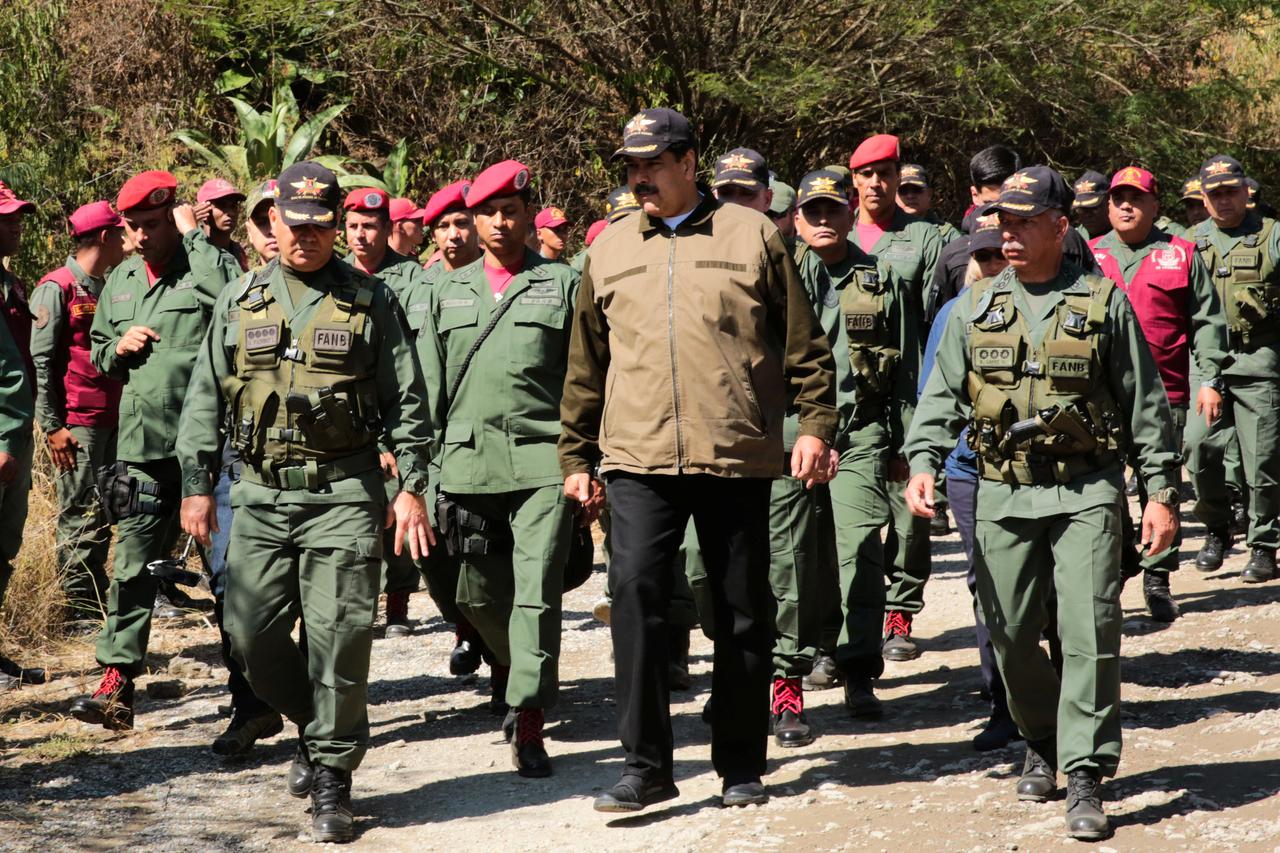Venezuelan general defects as anti-Maduro rallies draw huge crowds

CARACAS (Reuters) - A high-ranking Venezuelan general called on the armed forces to rebel against President Nicolas Maduro and to recognise the opposition leader Juan Guaido as the interim chief as huge crowds rallied against the head of state, adding pressure on Maduro to step down.
The military’s support is crucial for the embattled Maduro, who is deeply unpopular largely due to an unprecedented economic crisis that has prompted an exodus of millions, but claims he is victim of a coup directed by the United States.
The general’s defection came as tens of thousands of opposition supporters, many sporting clothes in the yellow, blue and red colours of the Venezuelan flag, turned out at rallies nationwide to protest against Maduro and show support for Guaido.
Washington, along with many countries in the western hemisphere, has recognised Guaido as the legitimate president, arguing that Maduro stole his second term, and imposed potentially crippling sanctions this week that are likely to further weaken the OPEC nation’s struggling oil industry.
While small rebellions against Maduro have broken out in Venezuela’s armed forces in recent months, there has been no large scale military uprising against him.
“People of Venezuela, 90 percent of the armed forces of Venezuela are not with the dictator, they are with the people of Venezuela,” General Francisco Yanez of the air force’s high command said in a video circulating on Twitter on Saturday.
“Given the happenings of the last few hours, already the transition to democracy is imminent.”
On its Twitter account, the air force’s high command accused the general of treason.
Yanez is the first active Venezuelan general to recognise Guaido since he proclaimed himself president on Jan. 23. Venezuela’s chief military attache to the United States also said he was defecting last week.
Canada and several Latin American nations have already officially recognised Guiado. Some European Union member states are expected to officially recognise Guaido next week, while others will likely take a more cautious stance of support.
“We are going to send a very clear message in all the municipalities of Venezuela and in each city of the world, we are going to give a demonstration of strength, in a pacific and organised manner,” Guaido tweeted on Saturday.
Mireanna Fernandez, a 20-year-old student at a protest in the eastern city of Ciudad Guayana, said before Guaido’s Jan. 23 proclamation she wanted to leave Venezuela, but now she had hope that Maduro’s government would end.
“I have no quality of life, I can’t go out onto the streets, my university is falling apart, they’ve closed classrooms, there are no teachers,” she said. “It’s time they leave.”







